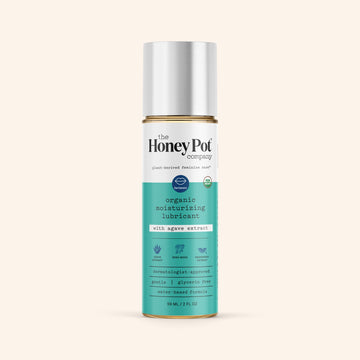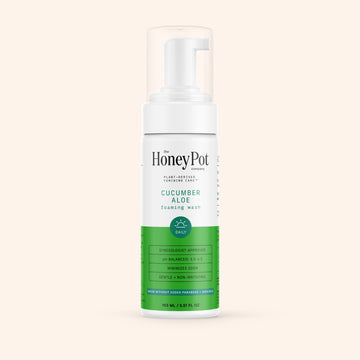A lack of formal education surrounding female and feminine healthcare has created a divide between women and their physical selves. Women that are in their 20’s and 30’s presently, are beginning to learn and feel empowered to better understand their bodies systems, their cycles and how this greater understanding of their biology can thus create a more intimate and personal relationship with themselves.
These very women are the ones that will pave the way for Generation Z and others to come, so that the topic of feminine care and women's health is not one filled with taboo, shame nor negligence.
My name is Neeyaz Zolfaghari, Integrative Nutritionist and Nourishment Coach, specializing in hormone health and autoimmunity. Like most others in the wellness industry, my journey to self connection began when I was given a diagnosis for an autoimmune disease at the tender age of 19. For those that are diagnosed with autoimmunity or chronic illness, there is an almost immediate disconnection created and felt between oneself and one’s body. Fast forward years later when I was guided to rediscover a connection between my whole self, did I truly begin to heal both on an emotional and physical level. One of the ways in which this connection was created, was in learning and understanding the wisdom that my female body has. Going beyond the depth of biology and physiology, I learned how to listen and nurture my innate wisdom and allow my body to direct the course of healing it sought. The most accessible way in learning how to do this, is through cycle synching.
Cycle synching is a holistic approach to balancing hormones, by living according to the cyclical patterns of our 28 day cycle. This cycle is broken down into four sub cycles - Follicular, Ovulation, Luteal and Menstrual. Hormones change and shift throughout these four cycles and by practicing proper care for each cycle individually, we’re able to experience optimal balance. Cycle synching is especially encouraged for those that are coming off of oral contraceptive, trying to conceive or have periods that are highly symptomatic.
For example,
Because of the low degree of hormones, the menstrual cycle calls for inward focus, physical and emotional rest, nourishing foods such as soups and stews. Mentally we are more creative, so brainstorming, intention setting and journaling are wonderful practices to connect to ourselves during our bleeding phase.
Whereas during ovulation, our hormones are heightened, so we have a lot of energy to burn. Physically our bodies are craving workouts such as HIIT and spinning, foods rich in fiber are best beneficial to support the elimination of any estrogen surplus. Mentally we strive for connection, collaboration and community.
Often when people think about the first time they got their period, it’s not usually a story filled with joy, empowerment nor celebration. I remember the first time I got my period, I was 11 years old and it happened while at school. I had a stomach ache all day and asked to go to the nurses’ office. When I saw the sight of blood, I burst into tears out of embarrassment and fear. I left school early and told my classmates that I had gone home because I had the flu.
The majority of young people do not have a complete understanding of the biological process of menstruation or menstrual health. If it is mentioned in a health or sex-ed class, it’s made to feel scary, embarrassing and gross. Encouraging people to honor and appreciate their bodies for all it does, starts first by providing them with the education they need both at home and in school.
For those with female physiology, we go through a 28 day cycle called the infradian rhythm. The infradian rhythm influences six systems of the body - the immune system, nervous system, metabolism, microbiome, stress response system and the reproductive system. Because this rhythm influences our reproductive system, it thus influences our menstrual cycle and every cycle thereafter. Many people well into their adult years, have no knowledge that there are four distinct phases that happen during menstruation. It doesn’t solely start and end during the week of our periods - there are changes and processes that happen throughout the month. During each of these four menstrual phases, we experience hormonal fluctuations that impact our sleep, energy, emotions, cognition, appetite and sexual energy. The way we sleep, eat, interact, create, work, play and move all influence the balance of these phases.
Let’s start with the menstrual or bleeding phase.
On average, a menstruating person’s menstrual phase is anywhere from 3 to 7 days. During this time, many biological shifts and changes are happening to accommodate for this activity.
During the menses phase, our hormones are at their lowest levels, specifically progesterone and estrogen. Progesterone is a hormone secreted by the corpus luteum; a mass of cells that develop in the ovaries during the second half of the full menstrual cycle. It soothes the nervous system, supports breast health, relieves anxiety and prepares the lining of the uterus (endometrium) to shed blood. Estrogen is a group of sex hormones that are produced in the ovaries. It helps regulate cholesterol levels, the urinary tract, heart, bone, skin, hair, brain and breast health.
Nutrition
Your uterus wants to be encompassed in a comfortable soothing hug during the menstrual phase. So think of those foods that are soothing and supportive like stews and soups. Your metabolism is actually faster during this phase, which means that you’ll need more caloric intake each day to support your body. Think of complex carbohydrates such as root vegetables and grains to stabilize your blood sugar. This is why people tend to crave more food (especially sweets) during their bleeding week - your body is in need of more calories! Getting this from nourishing foods will support your body overall. It’s also important to think about replenishing your body, since you are losing blood. Foods high in iron such as grass fed red meat, kidney beans, leafy greens, mushrooms, eggs and moringa leaf powder are especially helpful. Sea vegetables such as kelp and nori are also resourceful in restoring your body’s mineral balance. Other supportive menstrual nutrition during this phase includes spices such as ginger, cardamom and turmeric, blueberries and pumpkin seeds.
Sleep
Feeling sleepy? Lethargic? All normal and needed during this phase. Get some sleep, sneak in a couple of short naps throughout the day to re-energize you. Stick to a consistent sleeping schedule (yes, weekends too) and create a comfortable sleeping sanctuary using essential oils such as lavender and geranium, silk pillow cases, an eye mask and ambient noise.
Create & Work
Because the two brain hemispheres communicate the most during this phase, this is a great time to process thoughts, emotions, ideas and creations in a reflective practice. Pull out your journal and write out the things you want to create and bring to life.
Play
You may not be in the mood or have the energy to engage in sexual activities with yourself or safely with a partner. Perhaps take this time to rest, reset and once this phase is over, you’ll feel like playing and having fun again.
Move
If movement means resting or taking a nap, that’s absolutely perfect! Don’t push yourself to do more than it can during this time and definitely scale back on your more rigorous physical activity. A few days into the phase when you have more energy, lean towards short low impact exercises such as walking, pilates or restorative yoga *when your bleeding is the heaviest, avoid any inversion that has your head below your heart*
During your menstrual and bleeding phase, focus on rest and relaxation. Nurture yourself - mind, body and soul.







